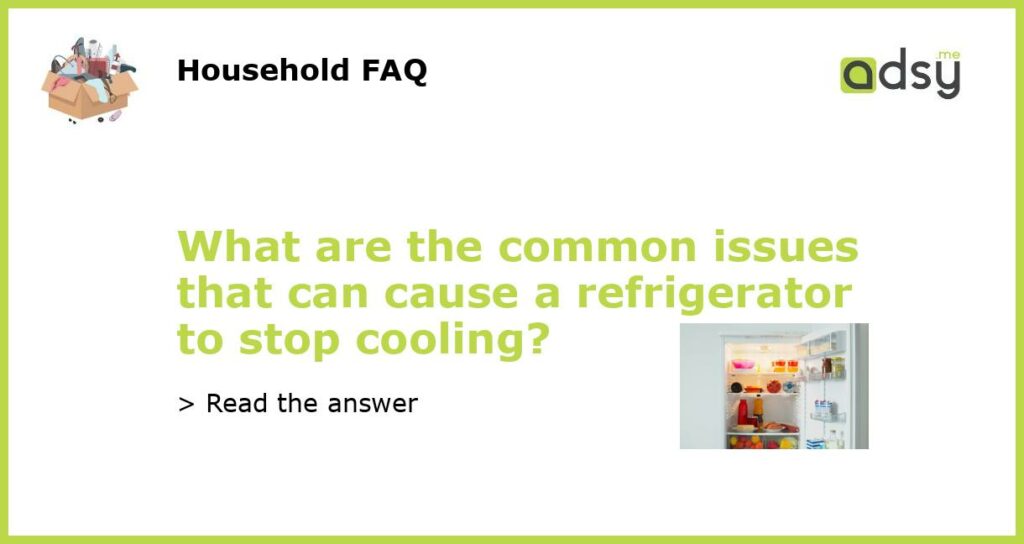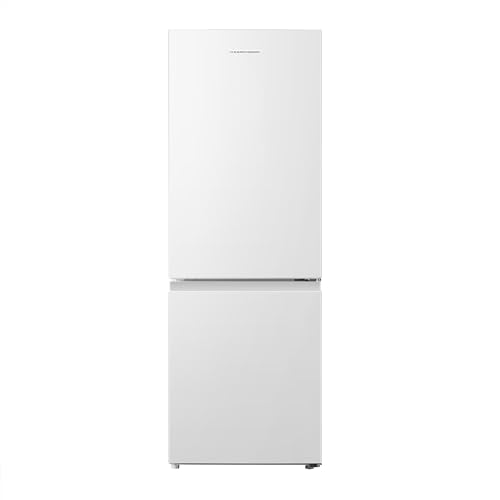Common Issues That Can Cause a Refrigerator to Stop Cooling
A refrigerator is one of the most important appliances in any household, as it keeps your food fresh and cool. However, there are times when it may stop cooling properly, leaving you with spoiled food and a headache. There can be various reasons for this issue, and below are some of the most common ones:
Dirty Condenser Coils
The condenser coils in your refrigerator play a vital role in cooling the unit. Over time, these coils can become dirty and clogged with dust, dirt, and other debris, hindering their ability to release heat. When the condenser coils are unable to cool down, it affects the cooling capacity of the refrigerator.
To fix this issue, you can clean the condenser coils using a vacuum cleaner with a brush attachment. Gently brush off any dust or dirt from the coils to improve their performance and ensure proper cooling. It is recommended to clean the coils at least twice a year to maintain optimal refrigerator functionality.
Faulty Evaporator Fan Motor
The evaporator fan motor is responsible for circulating cool air throughout the refrigerator. If this motor malfunctions or stops working altogether, it can lead to a lack of cool air in the unit. One way to check if the evaporator fan motor is working is by listening for a humming noise or feeling for air movement in the freezer area.
If the fan is not working, it may need to be replaced. It is important to address this issue promptly, as a faulty fan can prevent the refrigerator from reaching the desired temperature, causing food to spoil quickly. Consult a professional technician to diagnose the problem and replace the motor if necessary.
Damaged Door Seals
The door seals, also known as gaskets, on your refrigerator are designed to create an airtight seal when the door is closed. If these seals become damaged or worn out, it can result in cool air escaping and warm air entering the unit. This can cause the refrigerator to struggle to maintain a consistent temperature.
To check if the door seals are faulty, you can perform a simple dollar bill test. Close the door with a dollar bill hanging halfway out, and then try to pull it out. If the bill slides out easily, it indicates that the seals are not properly sealing the door. In such cases, you may need to replace the damaged door seals to resolve the cooling issue.
Low Refrigerant Levels
Refrigerators use a refrigerant, such as Freon, to cool the air inside the unit. If there is a leak in the refrigerant system or the levels are low, it can lead to inadequate cooling. Low refrigerant levels can be caused by a punctured tubing, a faulty compressor, or loose connections.
Fixing refrigerant issues requires professional assistance, as it involves handling potentially harmful substances. A qualified technician will conduct a pressure test to identify the leak and repair it. It is important to address refrigerant issues promptly, as continued operation without sufficient refrigerant can damage the compressor and other components of the refrigerator.
Inadequate Ventilation
A refrigerator requires proper ventilation to function efficiently. If the area around the refrigerator is cluttered or there are obstructions near the vents, it can hamper proper airflow and cooling. Additionally, if the refrigerator is placed too close to a wall or cabinets, it may not have enough space to dissipate heat.
Ensure that there is enough clearance around the refrigerator for air to circulate freely. Clean any dust or debris around the vents to maintain optimal airflow. If necessary, consider moving the refrigerator to a better location that allows for adequate ventilation.
In conclusion, a refrigerator not cooling properly can be a frustrating problem to deal with. By addressing these common issues, such as dirty condenser coils, a faulty evaporator fan motor, damaged door seals, low refrigerant levels, and inadequate ventilation, you can troubleshoot the problem and potentially avoid costly repairs or replacement. If you are unsure about any of these repairs, it is always recommended to seek professional assistance. Regular maintenance and prompt attention to cooling issues can help extend the lifespan of your refrigerator and keep your food fresh for longer.




![COMFEE' RCD93WH1(E) A Under Counter Fridge, 93L Fridge with Cooler Box, Interior Light, Removable Glass Shelf, Reversible Door Hinge, Adjustable Legs, White [Energy Class F]](https://m.media-amazon.com/images/I/51SGR0VK5ZL.jpg)

